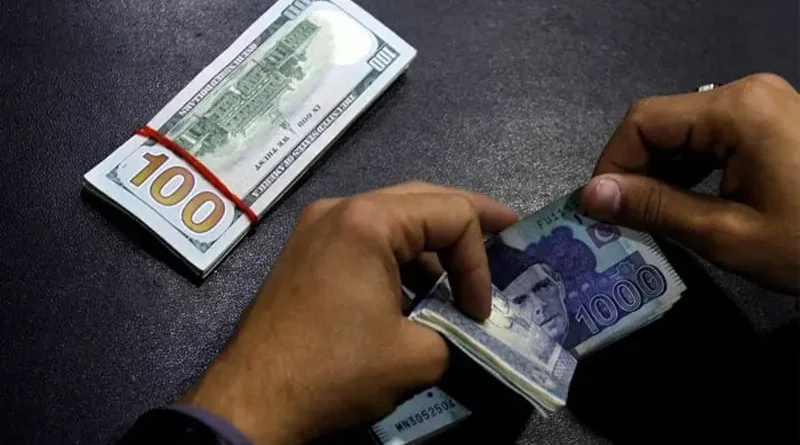PKR vs dollar: Rupee likely to remain ‘narrow range’ in December
KARACHI: The rupee is expected to trade in a narrow range in December amid hopes that the International Monetary Fund (IMF) Executive Board will approve the second instalment of $700 million for the country next month, The News quoted analysts and traders as saying on Sunday.
However, the local currency is weighed down by a backlog of import and profit repatriation payments, according to analysts and dealers.
The rupee edged up 0.23% against the dollar in the interbank market this week, closing at 283.87 on Friday.
“The positive sentiments are the reason why we aren’t expecting any significant change in the rupee in the coming sessions. The rupee is likely to trade at 283-284 per dollar,” said a currency trader.
“Despite a $237 million decrease in the State Bank of Pakistan’s foreign exchange holdings in just one week, mostly owing to loan repayments, optimism abounds as the expected IMF tranche next month is projected to increase reserves.”
Pakistan and the IMF reached a staff-level agreement last month on the first review of an existing $3 billion bailout. The disbursement of the second tranche of the bailout is subject to the approval of the Fund’s board during its meeting scheduled for January 11.
“Amidst heavy negative news-flow (IMF, reserves, remittances), rupee strengthened, quite against the run of play,” Tresmark said in a weekly note. “This implies that the authorities are resolute about maintaining stability in the currency market.”
In the first five months of the current fiscal year, remittances from Pakistani nationals employed abroad decreased by 10% to $11 billion. But in November, the amount of money sent home by workers abroad increased to $2.2 billion, an increase of 4% over the last year. In November, there was a 9% month-on-month decline in the remittance flows.
“While the rupee is expected to remain range bound till the end of the year, it will be strongly challenged due to backlog of import and profit payments, REER [real effective exchange rate] expected to cross the 100 per level and to rise materially in the over-valued territory after 30 months, and finally, due to fate of IMF board approval,” said Tresmark.
The IMF first indicated a staff-level agreement and promised a quick board approval — one side of the swing, only later to announce that it may be reviewed next month — another side of the swing.
“Could this be because someone forgot to add one more agenda item or could it be because the powers-be want to ensure more cooperation in terms of timely elections and/or international collaboration,” it added.
The central bank will announce the monetary policy on December 12.
In a poll undertaken by Tresmark, 75% of market participants expect no change in the policy, whereas 20% expect a 50 basis points rate cut. The majority believe inflation levels to remain elevated which does not justify a rate cut at current levels.

